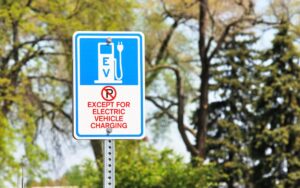The latest ZEVIP funding will cover up to 50 per cent of project costs—or 75 per cent for Indigenous applicants—to a maximum of $2 million per project

Applications will be accepted on a rolling basis until the program’s $9 million in funding is fully allocated.
The latest ZEVIP funding will cover up to 50 per cent of project costs—or 75 per cent for Indigenous applicants—to a maximum of $2 million per project
The federal government has launched a new request for proposals under the Zero Emission Vehicle Infrastructure Program (ZEVIP).
Open for applications starting this week, the RFP extends the government’s support for deploying public chargers, with this intake prioritizing projects located along key transportation corridors.
These high-priority corridors have been identified on Natural Resource Canada’s Electric Vehicle Charging Planning Map, created last year to identify underserved areas and close large gaps in the current charging network. The map uses a colour-coded, five-point priority scale to classify highways and major roads.
This latest round will only accept applications for projects in high-priority areas—those ranked a “4” (in jade green) or “5” (in forest green)—and located within 1.6 kilometres of a road identified on the EV Charging Planning Map.
NRCan has allocated approximately $9 million for this intake. Project proposals will be accepted on a continuous basis until all funding is committed.
Program eligibility and funding amounts
To be considered for funding, projects must meet several eligibility criteria.
Each project must include at least one public EV fast charger of 100 kW, supported by additional chargers to bring the total site output to at least 150 kW.
All chargers must also be manufactured either in Canada or in a country with an in-force trade agreement with Canada.
Installations must be permanent, hard-wired and publicly accessible 24/7. They must also be networked with a charging provider and include either a CCS or NACS connector.
NRCan will cover up to 50 per cent of total project costs (or up to 75 per cent for Indigenous businesses and communities), to a maximum of $2 million per project. Each applicant may submit up to two proposals.
Additional funding is available for Level 2 chargers co-located with fast chargers. Applicants can receive up to 50 per cent of eligible costs, to a maximum of $5,000 per connector. Indigenous businesses or communities can receive up to 75 per cent of total project costs, to a maximum of $7,500 per connector.
More details on how to apply for ZEVIP can be found here.






